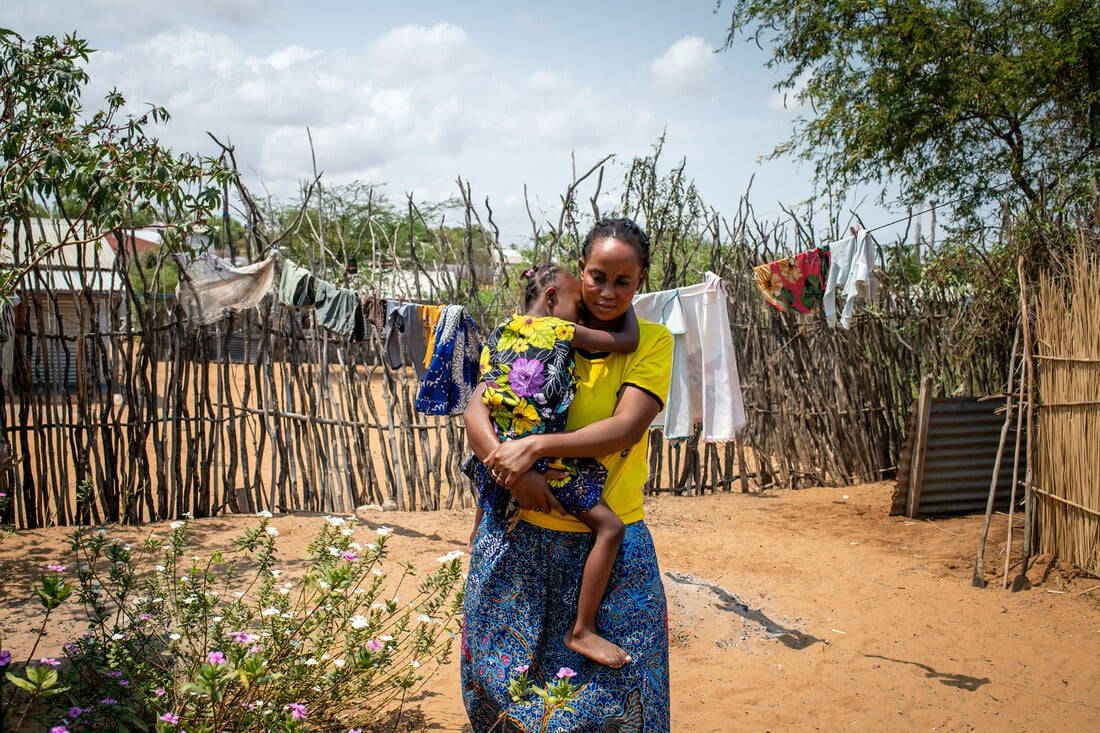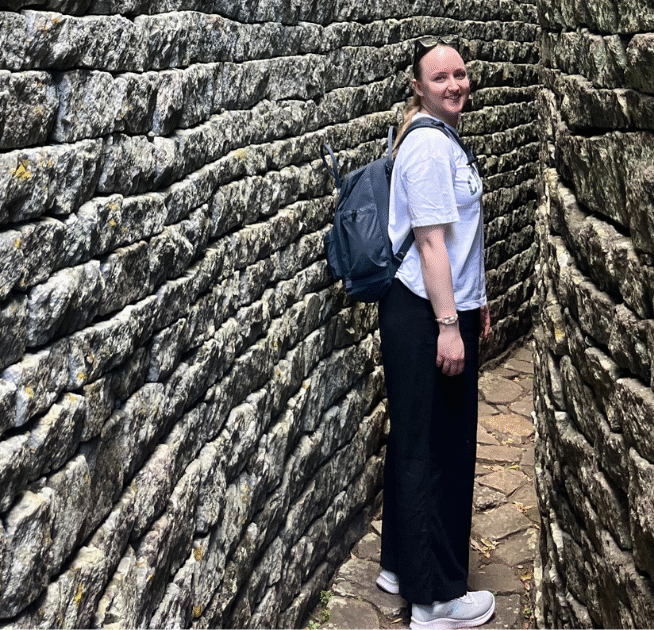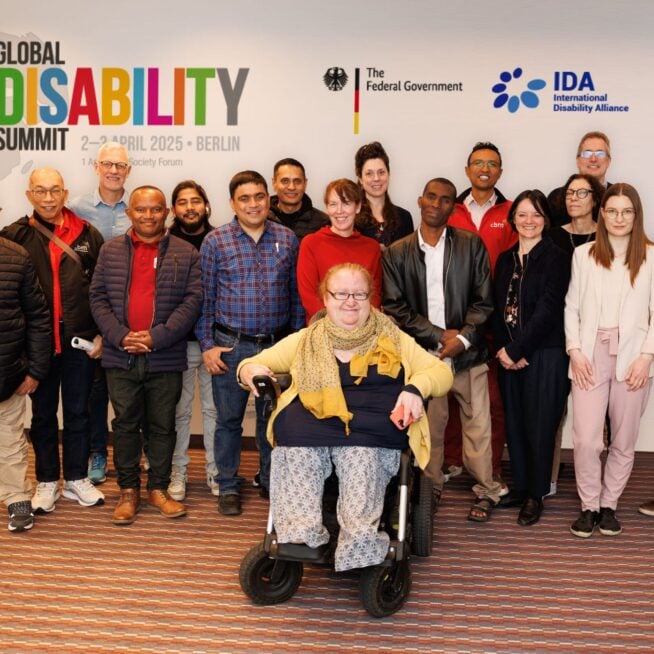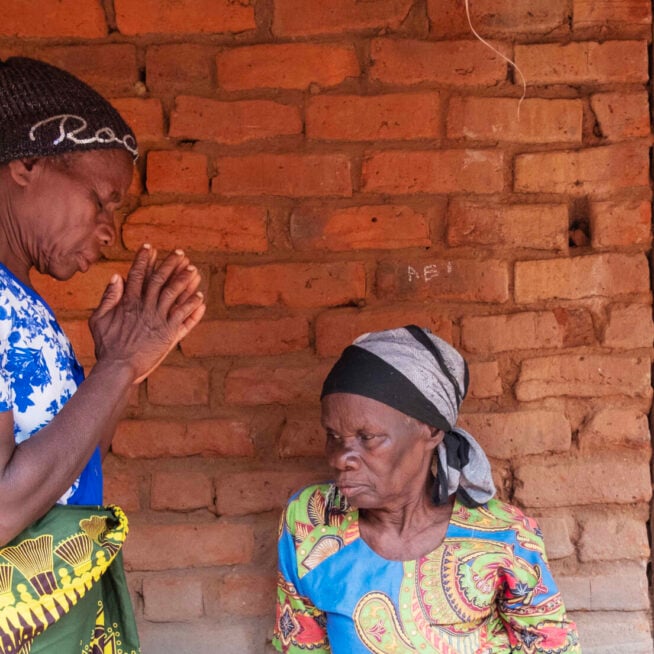“Now that I have attended SAGE, people in the community and in my family view me differently. Some thought I could not achieve anything in life. SAGE has given me a hand up. Through SAGE people now see that I can achieve anything in life.” SAGE Learner with disabilities
Supporting education for girls with disabilities in Zimbabwe
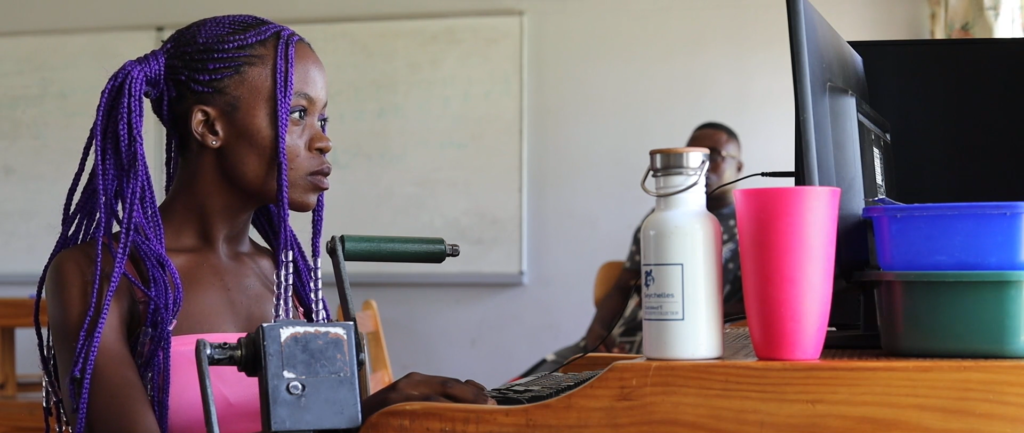
This is one of many powerful quotes that you can read in a newly published CBM UK ‘Disability Voices’ paper highlighting the impact that the SAGE (Supporting Adolescent Girls’ Education) project has had on girls with disabilities lives in Zimbabwe.
Globally, girls face many challenges in accessing an education. For girls with disabilities, gender barriers to education are amplified by disability-related discrimination and stigma. Children with disabilities, and girls even more so, are seen as a burden to their family and not seen to be worth investing in to go to school and as a result miss out on their right to education and life opportunities.
Through a consortia led by Plan International, the SAGE project in Zimbabwe (2018-2023) funded by FCDO, supported 13,460 marginalised adolescent girls (10-19 years old) to go to school, including 689 girls with disabilities alongside married girls, young mothers, and individuals belonging to certain religious and ethnic minorities. CBM targeted efforts to identify and address disability-specific barriers which were fundamental to improving learning outcomes for girls with disabilities. These included ensuring learning spaces and learning materials were accessible, meeting individual needs for assistive technology and other reasonable accommodations, and working to develop teachers’ skills in inclusive teaching methods. The project integrated skills and vocational training alongside literacy and numeracy, to further girls’ self-efficacy, and open up improved livelihood options. It also tackled stigma head-on and sought community engagement both with boys, and across generations, to shift attitudinal barriers and foster a more conducive social environment for girls to stand up for themselves and take their place within their community.
“Life was so difficult for me before SAGE; I could not afford to buy basic things, lotion, and sanitary pads, but now I can buy the toiletries and help around the house due to carpentry skills obtained through SAGE. Since finishing ISOP [Integrated Skills Outreach Programme], I have produced a bed and kitchen unit and sold them; the money was useful for supporting my household. I thank SAGE and teachers for their patience and support.” SAGE Learner with disabilities.
SAGE successfully improved learning outcomes for girls with disabilities, as well as their life skills and confidence. Listening to girls and others who participated in the programme provided strong testimony to the inherent value of creating inclusive learning environments and community support.
“Before I joined SAGE, I had no aspiration, no hope, especially as a girl with disabilities who had dropped out of school in Form 1. I never thought I would do something or become someone better. Now I have dreams and hopes, and I believe I can achieve them. In terms of communication, I have greatly improved. I can now speak English better, numeracy I can now add, subtract, or even multiply, which now helps me even as I would want to count money or change from the shops, which is a good thing.” – SAGE Learner with disabilities.
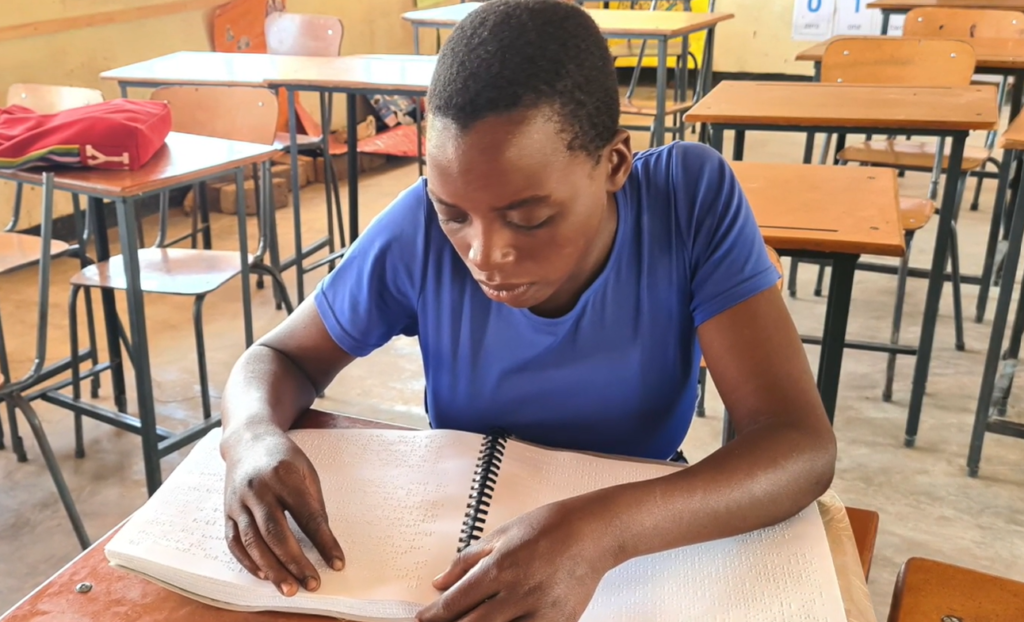
More information on the lessons and recommendations from CBM UK’s work in SAGE can be found in the Project Evidence Brief here. SAGE is continuing until March 2025 through additional support from FCDO Zimbabwe targeting a further 5000 girls.
SAGE (Supporting Adolescent Girls’ Education) is funded by UK aid through the Girls’ Education Challenge. It is led by Plan International and involves a consortium including Plan International UK, Plan International Zimbabwe, Open University UK, Apostolic Women’s Empowerment Trust (AWET), Christian Blind Mission (CBM), ECONET Wireless (ECONET) working in partnership with the Ministry of Primary and Secondary Education, Zimbabwe (MoPSE).
This blog was written by Elfreda Whitty, CBM UK Programme Manager, and Ursula Grant, CBM UK Evidence & Advocacy Manager, and was originally published by Scotland’s International Development Alliance here.
